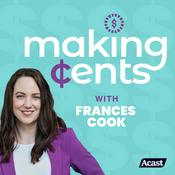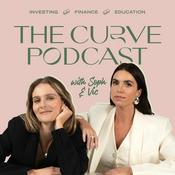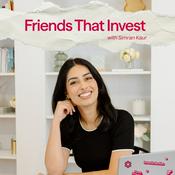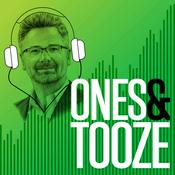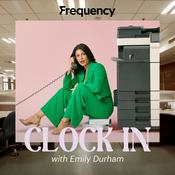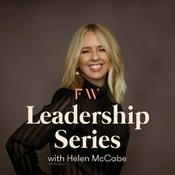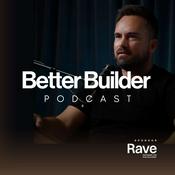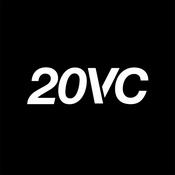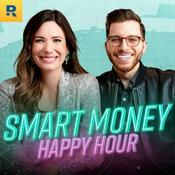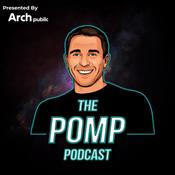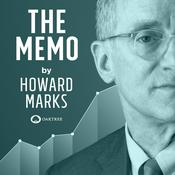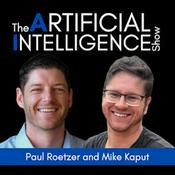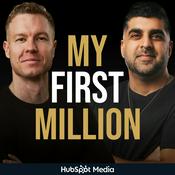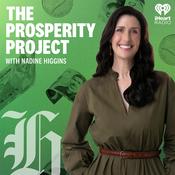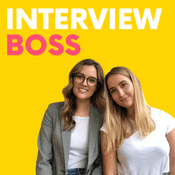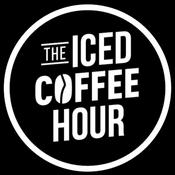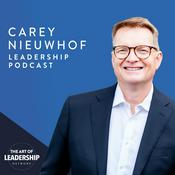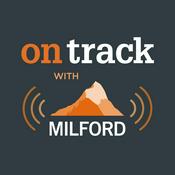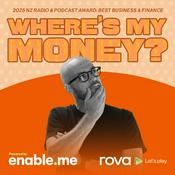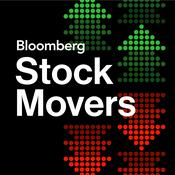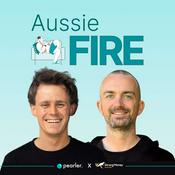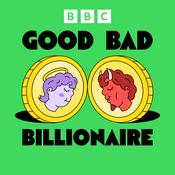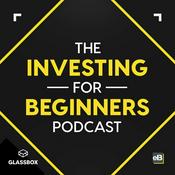279 episodes
- HelloFresh is one of the fastest-growing companies of the past 20 years.
And it’s down to one, relatively simple behavioural science tactic.
---
Subscribe to the Nudge Vaults: https://www.nudgepodcast.com/vaults
See Agent Spark in action at gwi.com/spark
Read Mehdi’s book: https://amzn.to/48ORuO2
Here's Medhi's website: https://tinyurl.com/ymnu6jty
Sign up for my newsletter: https://www.nudgepodcast.com/mailing-list
Connect on LinkedIn: https://www.linkedin.com/in/phill-agnew/
Watch Nudge on YouTube: https://www.youtube.com/@nudgepodcast/
---
Today’s sources:
Buechel, E., & Li, R. (2022). Mysterious consumption: Preference for horizontal (vs. vertical) uncertainty and the role of surprise. Journal of Consumer Research, 49(6), 987–1004.
Norton, M. I., Mochon, D., & Ariely, D. (2012). The IKEA effect: When labor leads to love. Journal of Consumer Psychology, 22(3), 453–460.
Skinner, B. F. (1948). “Superstition” in the pigeon. Journal of Experimental Psychology, 38(2), 168–172.
BBC News. (2015, August 12). The man who discovered Harry Potter [Video]. YouTube
Melanie Wass. (2019, September 16). J.K. Rowling – Insights on creating Harry Potter world [Video]. YouTube. - Most of us are completely oblivious to the cognitive biases that dictate how we live our lives.
Today, with Tom Bowden-Green and Luan Wise, we cover seven cognitive biases that all of us fall for.
---
Tom and Luan’s book: https://amzn.to/49aZnh3
Unlock the Nudge Vaults: https://www.nudgepodcast.com/vaults
See Agent Spark in action at gwi.com/spark
Join 10,428 readers of my newsletter: https://www.nudgepodcast.com/mailing-list
Connect on LinkedIn: https://www.linkedin.com/in/phill-agnew/
---
Today’s sources:
Chambers, J. R. (2008). Explaining false uniqueness: Why we are both better and worse than others. Social and Personality Psychology Compass, 2(2), 878–894.
Dunning, D. (2011). The Dunning–Kruger effect: On being ignorant of one’s own ignorance. In Advances in experimental social psychology (Vol. 44, pp. 247–296). Academic Press.
Einhorn, H. J., & Hogarth, R. M. (1978). Confidence in judgment: Persistence of the illusion of validity. Psychological Review, 85(5), 395–416.
Helmreich, R., Aronson, E., & LeFan, J. (1970). To err is humanizing sometimes: Effects of self-esteem, competence, and a pratfall on interpersonal attraction. Journal of Personality and Social Psychology, 16(2), 259–264.
Koskie, M. M., & Locander, W. B. (2023). Cool brands and hot attachments: Their effect on consumers’ willingness to pay more. European Journal of Marketing, 57(4), 905–929.
Pronin, E., Lin, D. Y., & Ross, L. (2002). The bias blind spot: Perceptions of bias in self versus others. Personality and Social Psychology Bulletin, 28(3), 369–381.
Van Hoorens, V. (1993). Self-enhancement and superiority biases in social comparison. European Review of Social Psychology, 4, 113–139.
White, G. L., Fishbein, M., & Rutstein, R. C. (1981). Passionate love and the misattribution of arousal. Journal of Personality and Social Psychology, 41(1), 56–62. - “Say you’ve calculated your price and it comes out at £120,121.
Most would round it down to £120,000.
That’s completely wrong.”
That’s what Robert Cialdini told me on the latest episode of Nudge.
He also explained why the Prime energy drink first succeeded and then flopped.
How Disney kept us hooked on classic movies.
And how he applies the authority bias to sell his own products.
---
Unlock the Nudge Vaults: https://www.nudgepodcast.com/vaults
See Agent Spark in action at gwi.com/spark
Read Cialdini’s bestseller Influence: https://amzn.to/4prHb7Y
Read the new and expanded Influence: https://amzn.to/43TY0jI
Read Pre-Suasion: https://amzn.to/48hA6Qr
Read Yes! (Containing 60 Psyc-Marketing Tips): https://amzn.to/48ddNNf
Join 10,226 readers of my newsletter: https://www.nudgepodcast.com/mailing-list
Connect on LinkedIn: https://www.linkedin.com/in/phill-agnew/
---
Today’s sources:
Cialdini, R. B. (2021). Influence: The psychology of persuasion (New & expanded ed.). Harper Business.
Dunn, E. W., & Norton, M. I. (2013). Happy money: The science of happier spending. Simon & Schuster.
Nelissen, R. M. A., & Meijers, M. H. C. (2011). Social benefits of luxury brands as costly signals of wealth and status. Evolution and Human Behavior, 32(5), 343–355.
West, S. G. (1975). Increasing the attractiveness of college cafeteria food: A reactance theory perspective. Journal of Applied Psychology, 60(5), 656–658.
Wilson, P. R. (1968). Perceptual distortion of height as a function of ascribed academic status. Journal of Social Psychology, 74(1), 97–102.
Worchel, S., Lee, J., & Adewole, A. (1975). Effects of scarcity on value perception: The cookie-jar study. Journal of Personality and Social Psychology, 31(5), 791–799. - This study analysed 6,700 websites in an unprecedented A/B test.
The results proved something that Dr Robert Cialdini had been preaching for years.
Today, on Nudge, Robert Cialdini joins me again, covering another of his seven principles of persuasion.
And I share a marketing lesson that (I think) every business needs to know.
---
Unlock the Nudge Vaults: https://www.nudgepodcast.com/vaults
See Agent Spark in action at gwi.com/spark
Read Cialdini’s bestseller Influence: https://amzn.to/4prHb7Y
Read the new and expanded Influence: https://amzn.to/43TY0jI
Read Pre-Suasion: https://amzn.to/48hA6Qr
Read Yes! (Containing 60 Psyc-Marketing Tips): https://amzn.to/48ddNNf
Join 10,189 readers of my newsletter: https://www.nudgepodcast.com/mailing-list
Connect on LinkedIn: https://www.linkedin.com/in/phill-agnew/
---
Today’s sources:
Bell, T. [Taylor Bell]. (2025, February 13). Inside Trader Joe’s: The genius strategy behind its cult following (and low prices) [Video]. YouTube.
Bornstein, R. F., Leone, D. R., & Galley, D. J. (1987). The generalizability of subliminal mere exposure effects: Influence of stimuli perceived without awareness on social behavior. Journal of Personality and Social Psychology, 53(6), 1070–1079.
Browne, D., & Swarbrick-Jones, A. (2017). The science of persuasion in e-commerce: An analysis of 6,700 online A/B tests. Conversion Rate Experts.
Danziger, S., Levav, J., & Avnaim-Pesso, L. (2011). Extraneous factors in judicial decisions. Proceedings of the National Academy of Sciences of the United States of America, 108(17), 6889–6892.
Drachman, D., deCarufel, A., & Insko, C. A. (1978). The extra credit effect in interpersonal attraction. Journal of Experimental Social Psychology, 14(5), 458–465.
Fang, X., Singh, S. N., & Ahluwalia, R. (2007). An examination of different explanations for the mere exposure effect. Journal of Consumer Research, 34(1), 97–103.
Gladka, A., & Żemła, M. (2016). Effectiveness of reciprocal rule in tourism: Evidence from a city tourist restaurant. European Journal of Service Management, 17(1), 57–63.
Mita, T. H., Dermer, M., & Knight, J. (1977). Reversed facial images and the mere-exposure hypothesis. Journal of Personality and Social Psychology, 35(8), 597–601.
Nicholson, C. Y., Compeau, L. D., & Sethi, R. (2001). The role of interpersonal liking in building trust in long-term channel relationships. Journal of the Academy of Marketing Science, 29(1), 3–15.
Razran, G. (1940). Conditioned response changes in rating and appraisal. Psychological Bulletin, 37(6), 481–493.
Shotton, R. (2023). The illusion of choice: 16½ psychological biases that influence what we buy. Harriman House.
Strohmetz, D. B., Rind, B., Fisher, R., & Lynn, M. (2002). Sweetening the till: The use of candy to increase restaurant tipping. Journal of Applied Social Psychology, 32(2), 300–309.
Zajonc, R. B., & Rajecki, D. W. (1969). Exposure and affect: A field experiment. Psychonomic Science, 17(4), 216–217. - KFC keeps its recipe secret.
It’s stored in a vault in an unknown location.
Only two KFC executives know the ingredients.
Neither are allowed to fly on the same plane.
But this secrecy is illogical. The recipe isn’t important.
Today on Nudge, Richard Shotton explains how the secrecy makes customers more loyal.
He shares his favourite ad of all time, and we run one of his experiments on you.
---
Read Richard’s book: https://a.co/d/fEW7amQ
Sign up for my newsletter: https://www.nudgepodcast.com/mailing-list
Connect on LinkedIn: https://www.linkedin.com/in/phill-agnew-22213187/
Watch Nudge on YouTube: https://www.youtube.com/@nudgepodcast/
---
Today’s sources:
Heimbach, J. T., & Jacoby, J. (1972). The Zeigarnik effect in advertising. Advances in Consumer Research: Proceedings of the 3rd Annual Conference of the Association for Consumer Research, 746–757.
Loewenstein, G. (1994). The psychology of curiosity: A review and reinterpretation. Psychological Bulletin, 116(1), 75–98.Zeigarnik, B. (1927). Über das Behalten von erledigten und unerledigten Handlungen. Psychologische Forschung, 9(1), 1–85.
More Business podcasts
Trending Business podcasts
About Nudge
Nudge is the UK's #1 marketing podcast, breaking down the hidden psychology behind what we do and why we do it. No BS, just smart, science-backed insights that actually work.
Podcast websiteListen to Nudge, The Diary Of A CEO with Steven Bartlett and many other podcasts from around the world with the radio.net app
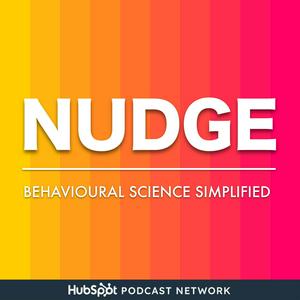
Get the free radio.net app
- Stations and podcasts to bookmark
- Stream via Wi-Fi or Bluetooth
- Supports Carplay & Android Auto
- Many other app features
Get the free radio.net app
- Stations and podcasts to bookmark
- Stream via Wi-Fi or Bluetooth
- Supports Carplay & Android Auto
- Many other app features


Nudge
Scan code,
download the app,
start listening.
download the app,
start listening.


